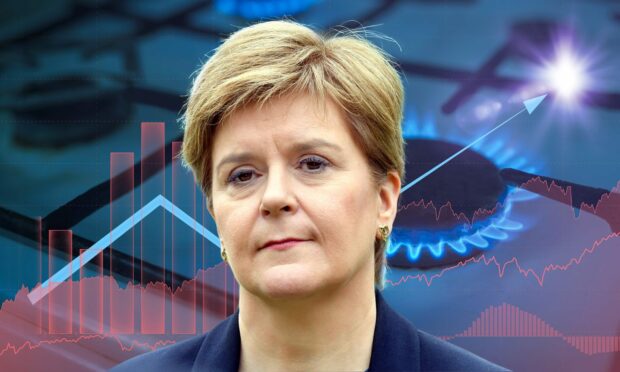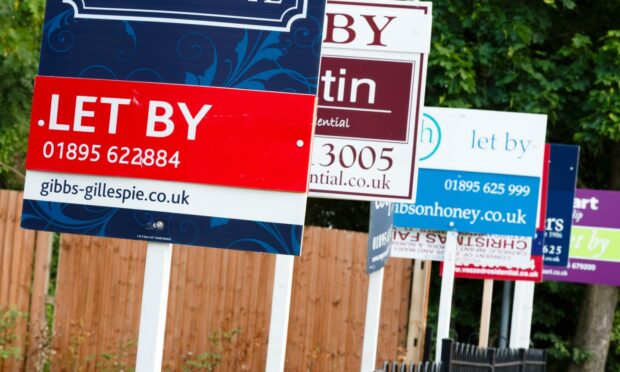Nicola Sturgeon put rent, welfare and housing at the centre of her plans to offset a tough year of rising bills for people across the country.
The first minister set out her programme for government on the first day back at Holyrood after summer – and on the same day Liz Truss officially became prime minister.
Here are the central policies for the year head, from social security payments to the SNP’s ultimate plan for a referendum in October 2023.
1. Emergency rent freeze
Ms Sturgeon pledged “immediate action” to protect renters with a freeze.
It comes months after the SNP and Greens rejected calls from Dundee Labour MSP Mercedes Villalba to cap how much landlords can charge.
Until now tenants across Scotland have been left without protections from rising rent prices despite the cost of living crisis.
The first minister said the policy is to come into effect as soon as she can pass legislation in the Scottish Parliament.
It caused an immediate backlash from landlords, including claims some will just take their vacant properties off the market.
Adrian Sangster, from propetry firm Aberdein Considine, said: “The private rented sector is a critical part of the housing mix but during the last few years it has been subject to increased regulations, much of it to the detriment of landlords.”
2. Temporary ban on evictions
On top of the rent freeze, homeowners will temporarily be banned from evicting renters.
The SNP hopes this will give tenants “security” during the winter while households struggle to pay bills.
Councils will be given increased powers to help cover social housing payments for poorer families.
While Labour backed the improved measures to help tenants, leader Anas Sarwar criticised the SNP for not acting sooner.
3. Child payments increased
The Scottish Child Payment will be increased to £25 a week from November 14.
The financial support benefit was previously doubled from £10 to £20 in April.
Parents with children up to the age of 16 will be able to apply from November.
4. ScotRail fares frozen
All ScotRail fares will be frozen for the next six months to help commuters.
The Scottish Government took the nation’s railways into public ownership in April and has been urged to make train travel more affordable.
Ms Sturgeon said price increases would be capped until at least March 2023.
Opposition parties said it just puts off an inevitable rise on already-high ticket prices.
5. Fuel support doubled
Scotland’s fuel insecurity fund will double from £10 million to £20 million.
Ms Sturgeon said this will help poorer families cope with increasing energy prices and inflation.
The fuel fund supports households at risk of having to ration essential energy.
6. Emergency budget
When Westminster outlines an emergency budget to tackle the costs crisis emergency, Holyrood will follow suit.
The first minister said Scottish finances are already under “severe pressure” due to soaring inflation.
Ms Sturgeon warned Holyrood’s budget was now worth £1.7 billion less in real-terms compared to when it was first put forward last December.
It’s been reported the new prime minister may introduce a major financial package to freeze bills for families and businesses before the October price rise.
The first minister claimed it was “not possible” for her party to finalise their own budget review until Westminster had done so.
7. Independence
Ms Sturgeon linked the cost of living crisis directly to her pitch for independence and claimed it showed why Scotland must leave the UK.
The first minister still plans to introduce a bill to hold a referendum next October as her government’s legal wrangle with Westminster at the Supreme Court continues.
She said Scottish Government action is limited because only the UK Government can fully freeze energy bills.
However, her pro-union rivals said the SNP still has plenty of scope to do more.
They said £20 million earmarked for a second independence referendum should be diverted to the cost of living crisis.
Scottish Tory boss Douglas Ross said: “The prime minister has changed, but sadly it’s the same first minister directing blame elsewhere and seeking grievance with the UK Government.”




